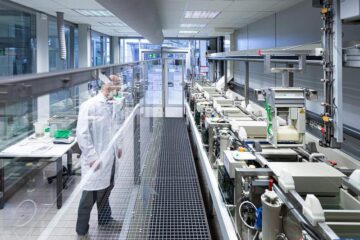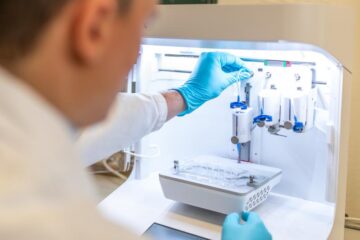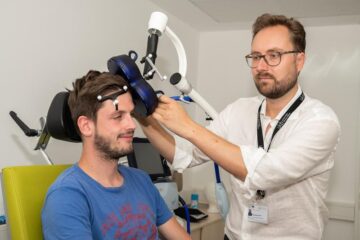Helping good bacteria win the war on dental disease

Good bacteria growing in dental plaque could help fight off bugs that cause gum disease and tooth decay if they are given a competitive edge, according to research presented today (Monday 16 September) at the Society for General Microbiology autumn meeting at Loughborough University.
“We’ve found that the composition of bacteria in dental plaque changes when there is disease and native bacteria can no longer fight off harmful species. But by controlling the environment in the mouth we can stop the good guys being killed off,” says Professor Philip Marsh of the Centre for Applied Microbiology & Research, Salisbury.
Harmful bacteria tend to be more competitive especially in acidic environments, which are formed when we eat sugary foods. Antibiotics can be used to treat gum disease. But these wipe out all bacteria, leaving our mouths unguarded by our resident microbes.
“Alternatively we could use a more ecological approach. For example bacteria that cause gum disease could be controlled using anti-inflammatory drugs. By using alternative sweeteners, or stimulating saliva production we can prevent the growth of bacteria that cause tooth decay,” explains Prof Marsh.
“We think that these novel approaches may be developed to control or prevent dental diseases. An ecological approach can facilitate a more holistic approach to understanding these diseases, and can improve communication with patients and training for dentists,” says Prof Marsh.
Media Contact
Weitere Informationen:
http://www.sgm.ac.ukAlle Nachrichten aus der Kategorie: Medizin Gesundheit
Dieser Fachbereich fasst die Vielzahl der medizinischen Fachrichtungen aus dem Bereich der Humanmedizin zusammen.
Unter anderem finden Sie hier Berichte aus den Teilbereichen: Anästhesiologie, Anatomie, Chirurgie, Humangenetik, Hygiene und Umweltmedizin, Innere Medizin, Neurologie, Pharmakologie, Physiologie, Urologie oder Zahnmedizin.
Neueste Beiträge

Wie die Galvanotechnik durch Digitalisierung effizient wird
SurfaceTechnology GERMANY… Digitalisierung und Hartverchromung aus Chrom(III)-Elektrolyten: Das sind die beiden großen Themen, mit denen sich Forscherinnen und Forscher von der Abteilung Galvanotechnik am Fraunhofer IPA derzeit beschäftigen. Ihre Erkenntnisse…

Ersatz für Tierversuche – jetzt ganz ohne Tierleid
Erstes Gewebe-Modell der Leber völlig ohne Materialien tierischer Herkunft hergestellt. Wissenschaftler*innen der TU Berlin haben mit Hilfe von 3D-Biodruck erstmals ein Modell der Leber aus menschlichen Zellen hergestellt, ohne dabei…

Neue Wege zur mentalen Gesundheit
Magnetspule am Kopf sorgt für antidepressive Effekte… In der Klinik und Poliklinik für Psychiatrie und Psychotherapie am Universitätsklinikum Bonn (UKB) wird derzeit eine Studie zur Erforschung der antidepressiven Wirkung einer…





















